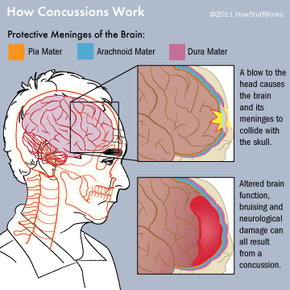So, I've identified a concussion in my child, what should I do next?
See the Doc
If you suspect that your child or loved one may have suffered a serious head injury and they are experiencing any of the above symptoms, first make an appointment with the family physician or pediatrician immediately.
It is important to note that a diagnosis of concussion cannot be made by a CT scan or MRI. Those tests can check for physical signs of injury, such as a fracture or bleeding, but they cannot diagnose the functionality of the brain, such as the changes that would indicate a concussion.
To help in the diagnosis of a concussion, a physician is needed in order to put the puzzle pieces together. A doctor can also complete a physical examination and possibly test the child's memory in order to see how well they are able to recall information.
Get Tested
If a concussion is suspected, the doctor may suggest another type of test, a computerized examination known as neurocognitive testing. This test tracks the child's ability to think, concentrate, learn and reason. It is often most helpful to compare the results to their pre-injury neurocognitive test (many schools offer this test before the start of sports seasons). However, even if your child has not had this type of test before, it can be an aid in tracking how well the child is recovering cognitively from their concussion.
Give it Time
It's a tough pill for a concerned mother to swallow, but when it comes to this type of injury, what your child needs most is some rest and relaxation.
Time is what will help the brain to heal from a concussion. This may mean avoiding loud noises such as television and the radio and keeping activity to a bare minimum.
Listen to what your physician says -- it may take weeks to months to go back to normal levels of activity depending on the severity of the injury. Be sure to keep in touch with your child's physician and school teachers in order to track the progress of your child's injury.
